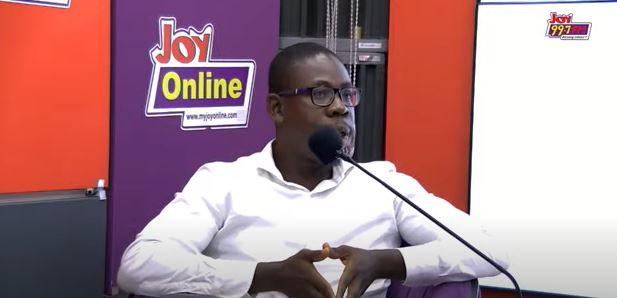An Associate Professor of Finance at the University of Ghana Business School, Elikplimi Komla Agbloyor, has highlighted a number of factors that have consistently driven the country to the International Monetary Fund (IMF).
According to him, high unemployment and high lending interest rates are among the key factors driving the country to the IMF on a regular basis.
He was speaking on Joy FM’s Super Morning Show, in relation to the country’s decision to seek an IMF bailout.
Government has been blaming the current development on the Covid-19 pandemic and the Russia-Ukraine war.
The Professor, who has developed a module that helps to predict whether or not a country will go to the IMF, says otherwise.
According to him, Ghana's economic woes predate the Russian-Ukraine war and the outbreak of the Covid-19 pandemic.
"We were likely to go to the IMF again as far back as 2017," he stressed.
He acknowledged that the Russia-Ukraine war and the Covid-19, have contributed immensely to the decision, however, the propensity of the country to seek support from the IMF prior to the war was very high due to the aforementioned factors.
“The module identifies traditional factors such as the debt ratio, exchange rate, level of domestic savings, are key predicting factors dragging the country to the IMF,” he added.
That notwithstanding, he called for prudent measures to be adopted to avert the situation.
He believes one way to do that is by changing the structure of Ghana’s economy.
He noted that Ghana can actualise its dream of becoming a wealthy country by changing the structure of the economy, rather than seeking an IMF bailout.
“For me what the IMF programme does for us is to provide for us some space and time to be able to put our house in order. So that gives us time in the short to medium term to be able to implement the necessary policies to ensure that the economy is stronger,” he said on Joy FM’s Super Morning Show.
He was contributing to discussions that centered on the country’s decision to seek an IMF bailout as part of measures to cushion the economy, and how the country can do away with this development.
During the discourse which also sought to provide solutions to the country’s endless economic woes, he emphasised that until Ghana is able to change the structure of the economy, the country will continue to frequent the IMF.
Latest Stories
-
Brazilian Supreme Court justice threatens to arrest Bolsonaro
3 hours -
Queen Elizabeth II’s fashion to feature in exhibition
3 hours -
North Macedonia backs Morocco’s autonomy plan as sole basis for resolving Sahara dispute
3 hours -
Coach Lars Björkegren “proud” of Black Queens after penalty defeat to Morocco
3 hours -
Hosts Morocco to take on Nigeria in African women’s final
3 hours -
We were the better team – Queens coach Bjorkegren reflects on WAFCON 2024 semi-final loss
4 hours -
Mali court rejects appeal to release four Barrick employees, judge says
4 hours -
Kenyan man on death row in Saudi Arabia freed
4 hours -
Euro 2025: England beat Italy to reach finals
4 hours -
Ho Technical University partners with GhIE Branch 6 For Engineering and Innovation Week
4 hours -
The voices in the cockpit fuelling controversy over Air India crash
4 hours -
Mike Lynch estate and business partner owe HP Enterprise £700m, court rules
4 hours -
Trump administration pulls US out of UNESCO again
4 hours -
WAFCON 2024: Ghana’s Black Queens miss out on final after penalty loss to Morocco
4 hours -
Coca-Cola will roll out cane sugar Coke in US after Trump push
5 hours

